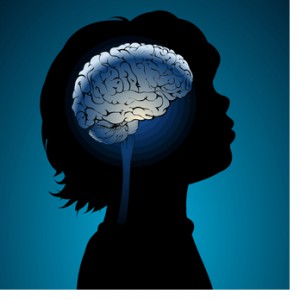5 Reasons Why Parents of Children with ADHD Need to Become Proactive, Well-Informed Advocates
 .
.
Most children with ADHD receive their care from community-based pediatricians, so it is especially important for that care to be consistent with best-practice guidelines.
Unfortunately, all too often it is not.
The guidelines
Here is a brief summary of some key ADHD guidelines published by the American Academy of Pediatrics in 2000 (and updated in 2011).
- Diagnosing ADHD requires determining that DSM criteria for the disorder have been met. Making this determination requires information to be obtained from parents or guardians, teachers, and others.
- ADHD evaluations should include assessment for other conditions that may co-occur with ADHD, including emotional or behavioral (eg, anxiety, depressive, oppositional defiant, and conduct disorders), developmental (eg, learning and language disorders or other neurodevelopmental disorders), and physical (eg, tics, sleep apnea) conditions.
- Treatment and management of ADHD should reflect that it is a chronic condition and may impact children’s development and functioning over many years. Parents need to be supported in consistently implementing treatments for their child over an extended period.
- For children ages 4–5, evidence-based parent– and/or teacher-administered behavior therapy should be the first line of treatment. Stimulant medication may be prescribed if improvement is not significant and there remain moderate-to-severe disturbances in the child’s function.
- For 6–11 year old children, FDA-approved medications for ADHD and/or evidence-based parent– and/or teacher-administered behavior therapy are the front line treatments for ADHD; ideally, these treatments would be combined.
- For adolescents, FDA-approved medications should be prescribed with the adolescent’s assent. Behavior therapy may also be prescribed and will ideally be combined with medication.
- When prescribing medication, clinicians should titrate doses of ADHD medication to achieve the maximum benefit with minimum side effects.
- It is important for medication efficacy to be systematically monitored at regular intervals so that adjustments can be made when indicated
How well are these guidelines being followed?
The best data on this question comes from the study Variability in ADHD care in community-based pediatric practices, published online recently in the journal Pediatrics. The authors recruited 184 pediatricians across 50 pediatric practices in Central and Northern Ohio for a study focused on improving community-based care for children with ADHD. For each pediatrician, 10 charts for patients with an ADHD diagnosis code were randomly selected so that the assessment and treatment procedures received by those patients could be reviewed. What did they find? In essence, they found 5 strong reasons why parents of children with ADHD need to become proactive & well-informed advocates of their care:
- For around 30% of children diagnosed with ADHD, the evidence that DSM criteria were met was missing.
- ADHD rating scales were collected from parents and teachers for only 56% of youth with an ADHD diagnosis.
- Pediatricians prescribed ADHD medication to roughly 93% of youth diagnosed with ADHD. Documentation that behavioral treatment was recommended, however, was present in only 13% of the charts.
- Follow-up contact (visit, phone call, or email) within 30 days of prescribing medication was documented in fewer than 50% of charts. Thus, for over half of youth prescribed medication, there is no indication that any information on the child’s response to medication was obtained during the 1st month.
- With respect to monitoring treatment response over time, this rarely occurred. Only 11% of charts had any evidence of parent ratings to monitor treatment response and less than 8% had teacher ratings within the 1st year of treatment. In addition, the average time between initiating medication treatment and collecting parent or teacher ratings was quite long — 396 days for parents and 362 days for teachers.
Although the data does not come from a nationally representative sample, results are discouraging in that guidelines from the American Academy of Pediatrics on the evaluation and treatment of ADHD were frequently not followed. The findings indicate that many children are diagnosed with ADHD in the absence of clearly meeting DSM diagnostic criteria and that behavioral treatment is rarely recommended.
Why does this matter?
Although pediatricians are frequently initiating medication treatment, gathering data early in treatment to determine the child’s response is often neglected, and systematically monitoring treatment response over time is rare. As a result, many children are likely to be deriving significantly less benefit from such treatment than they would if the guidelines were routinely followed. This is because careful monitoring often reveals the need to adjust a child’s dose, and sometimes medication, to maintain optimal benefits.
It is important not to interpret these findings as an opportunity to blame pediatricians for providing poor quality care to many children with ADHD. Certainly, the data indicate that there is ample room for improvement in terms of pediatricians following the AAP guidelines more consistently. However, pediatricians often have dozens (or in some cases, hundreds) of youth with ADHD in their practice and providing systematic follow up care and treatment monitoring in the context of a busy community-based practice can be extraordinarily difficult. Even when rating scales are provided to parents and teachers so that a child’s treatment can be monitored, they are often not returned in a timely manner. Thus, the behavior of parents and teachers can undermine a physician’s efforts to provide care consistent with AAP guidelines despite his or her best efforts.
All parents should become proactive and well-informed advocates of their children, partnering with their health care providers and allied professionals to ensure the proper diagnosis, treatment and monitoring for each individual child.
– Dr. David Rabiner is a child clinical psychologist, Director of Undergraduate Studies in the Department of Psychology and Neuroscience at Duke University, and founder of the Attention Research Update. Alvaro Fernandez, named a Young Global Leader by the World Economic Forum, is the co-author of The SharpBrains Guide to Brain Fitness: How to Optimize Brain Health and Performance at Any Age. 
–> They have partnered to offer the upcoming online course How to Navigate Conventional and Complementary ADHD Treatments for Healthy Brain Development. (May 2015; registration open)


